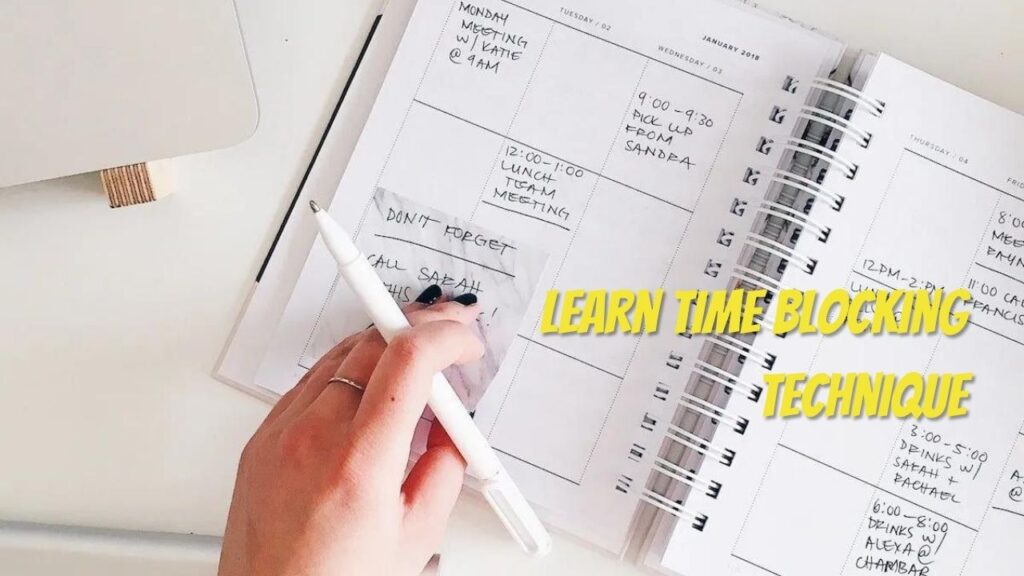Mental health is an essential aspect of overall well-being, yet it is often overlooked and stigmatized. Recognizing the significance of mental health, the World Federation for Mental Health (WFMH) has declared the theme for World Mental Health Day 2023 as “Mental health is a universal human right.” This theme emphasizes the need to place mental health within a human rights framework and highlights the importance of equal access to mental health services for all individuals.
Addressing Disparities and Stigma
Previous reports by the UN Human Rights Office have revealed that individuals with mental health conditions and psychosocial disabilities experience higher rates of poor physical health and reduced life expectancy.
Moreover, stigma and discrimination contribute to the lack of quality care and limited access to necessary services. This year’s theme acknowledges these challenges and aims to promote a more inclusive society that fosters healthy relationships and social interactions.
Placing Mental Health in a Human Rights Framework

Mental health should be viewed as a fundamental human right, just like other aspects of well-being. Governments and global organizations have a responsibility to ensure access to mental health services and support, which cannot be ignored any longer.
Basic living conditions, security, food, shelter, and housing are all essential components that contribute to mental health. By placing mental health within a human rights framework, we can reframe the aspiration for sound mental health as a universal right for all citizens of the world.
The Role of College Students in Prioritizing Mental Health
College students everywhere, including in India, face various challenges and pressures that can significantly impact their mental well-being. It is crucial for students to prioritize their mental health and take proactive steps to maintain a healthy mindset. By focusing on their mental health, students can improve their overall well-being and enhance their academic performance.
Here are a few suggestions for college students to promote mental health:
1. Seek Support: Reach out to friends, family, or campus support services when you need someone to talk to. Don’t hesitate to ask for help or guidance when facing difficulties.
Some of the best mental health support resources you can find on campus are:
- Counseling services: You can seek professional guidance from counselors and therapists for all kinds of issues you may face, including academic pressure, family problems, or relationship troubles.
- Student support groups: Support groups are great for students who want to share their experiences and feelings with others who are going through similar situations. These may include dealing with breakups, substance abuse, or depression.
- Mental health workshops: The workshops on campus can provide useful information and strategies to manage stress, build resilience, and better cope with challenging situations.
2. Practice Self-Care: Engage in activities that promote relaxation and self-care, such as exercise, meditation, hobbies, and spending time with loved ones. Taking breaks and managing time effectively can reduce stress levels.
Some of the top mental health self-care tips for college students include:
- Grounding to Overcome Stress: When you are feeling troubled because of getting displaced from home, arguments with your family, illness, or uncertainty about the future, you might not feel hungry or experience a lump in the throat, headaches, upset stomach, neck and shoulder pain, or tight muscles.
High stress may cause you to lose focus, make you irritable, disturb your sleep cycle, and make you feel sad, worried, tired, or guilty. At such times, practice grounding. Focus and engage with anything and everything you do. If you are drinking water, drink it slowly. Savour its taste. Notice its temperature. Notice the movements of your throat as you swallow the water.
Grounding distracts you from thoughts or feelings that hook you into feeling sad and stressed.
- Learn to Unhook to Overcome Procrastination: Everybody has a different way of dealing with sadness. Some people sleep all day. Some give up. Some isolate themselves and avoid people. Some start yelling and some watch Netflix to avoid thinking about issues that bother them.
When you are feeling emotionally swamped out, take out some time to reconnect with your inner self. Just noticing which thoughts and feelings are hooking you, naming them (silently), and refocusing on what you are doing can go a long way in countering procrastination.
- Identify Your Core Values and Act on Them: Knowing what kind of person you want to be and what you want to achieve can go a long way in identifying what are your core values. For example, many college students want to get a job that can help them support their families. Their values include being caring, loving, and supportive of their family, friends, and people around them.
Even if it seems that you are not being able to achieve your goals, continue to act on your values. With your actions, you influence the immediate world around you.
Some of the ways to find your core values are:
- Think of your role model and write what values you admire in them.
- Think of how you want to treat people around you…and decide which qualities you want to develop in yourself. As they say, you reap what you sow. So, if you act on your values, you will see yourself creating a fulfilling life for yourself.
3. Maintain a Balanced Lifestyle: Ensure you have a healthy balance between academics, social life, and personal interests. Prioritize self-care and avoid overloading yourself with excessive commitments.

College is the right time to learn time management and work-life balance. Some tips that will surely work for you include:
1. Pomodoro Technique: The Pomodoro Technique is a time management method that involves breaking your work into focused intervals followed by short breaks. Here’s how it works:
- Choose a task you want to work on.
- Set a timer for 25 minutes (this is known as one “Pomodoro”).
- Work on the task with full concentration until the timer goes off.
- Take a short break of 5 minutes.
- Repeat the process: 25 minutes of focused work followed by a 5-minute break.
- After completing four Pomodoros, take a more extended break of 15-30 minutes.
This technique helps maintain focus, prevents burnout, and enhances productivity by breaking work into manageable chunks and incorporating regular breaks. It also provides a sense of urgency and motivates you to make the most of your working time.
2. Eisenhower Matrix: The Eisenhower Matrix, also known as the Urgent-Important Matrix, is a powerful tool for prioritizing tasks based on their urgency and importance. It helps you allocate your time effectively and avoid getting overwhelmed by non-essential tasks. Here’s how it works:
- Create a grid divided into four quadrants: Urgent and Important, Important but Not Urgent, Urgent but Not Important, and Not Urgent or Important.
- List your tasks and assignments in their respective quadrants based on their urgency and importance.
- Prioritize tasks in the Urgent and Important quadrants as they require immediate attention.
- Allocate time for tasks in the Important but Not Urgent quadrant to prevent them from becoming urgent.
- Delegate or eliminate tasks in the Urgent but Not Important quadrant whenever possible.
- Limit time spent on tasks in the Not Urgent or Important quadrant to prevent wasting time on non-essential activities.
This technique helps you identify and focus on tasks that truly matter, allowing you to make efficient use of your time and prioritize your workload effectively.
3. Time Blocking: Time blocking is a technique where you divide your day into specific blocks of time dedicated to different activities. Here’s how you can implement it:

- Start by creating a weekly schedule. Identify your fixed commitments, such as classes, work shifts, or extracurricular activities.
- Determine the amount of time you need for studying and completing assignments. Assign specific blocks of time for focused study sessions.
- Allocate blocks for other essential activities like work, exercise, meals, and personal time.
- Be realistic and leave some buffer time for unexpected tasks or relaxation.
- During each designated block, focus solely on that activity and avoid distractions as much as possible.
- Regularly review and adjust your schedule to ensure it remains balanced and effective.
Time blocking allows you to prioritize and allocate dedicated time for all important aspects of your life. It helps maintain a structured routine, reduces procrastination, and ensures you give sufficient attention to each area without overwhelming yourself.
4. Learn to Say No and Set Boundaries: College life often comes with numerous social activities, events, and requests that can quickly fill up your schedule. Learning to say no and setting boundaries is essential to maintain a healthy balance. Here are some tips:
- Prioritize your commitments and understand your limits. Know when to say no to additional responsibilities or social engagements that may disrupt your study or personal time.
- Communicate your boundaries clearly with friends, family, and colleagues. Let them know when you’re available and when you need focused time for studying or self-care.
- Be assertive but respectful when declining invitations or requests. Remember, setting boundaries is necessary for your well-being and academic success.
- Practice the time management techniques mentioned earlier to ensure you have designated time for both work and personal activities.
- Learn to manage guilt or FOMO (fear of missing out) by reminding yourself of your priorities and the importance of self-care and academic success.
Setting boundaries helps you maintain a healthy work-life balance, reduces stress, and allows you to allocate time for your studies and personal well-being effectively. Remember, it’s okay to prioritize your own needs and make choices that align with your goals and values.
4. Build a Supportive Network: Surround yourself with positive and supportive individuals who uplift your spirits and understand the challenges you may face. Join clubs or organizations that align with your interests and values.

1. Get Involved in Campus Activities: Participating in campus activities, clubs, and organizations is an excellent way to meet like-minded individuals and build connections. Consider joining clubs or groups related to your interests, hobbies, or academic pursuits.
Attend social events, meetings, or workshops organized by these groups to connect with fellow students who share similar passions. Engaging in these activities provides opportunities to form meaningful relationships and find support within your college community.
2. Utilize Campus Resources: Most colleges offer a variety of resources and services designed to support students’ well-being and social connections. Take advantage of these resources to build your support network.
Actively participating in social events and networking opportunities on campus is an effective way to meet new people and expand your social circle. Keep an eye out for events such as orientation programs, campus fairs, guest lectures, or alumni gatherings.
Attend these events with an open mind, be approachable, and initiate conversations with fellow students, faculty members, or guest speakers. Networking and socializing can lead to lasting connections and provide you with a broader support network.
SMS Varanasi’s Behaviour Dynamics Club: Prioritizing Mental Health & Well-Being
SMS Varanasi recognizes the significance of mental health and has established the Behaviour Dynamics Club to address mental health concerns among its students.
The club organized a workshop titled “Prioritizing Mental Health and Well-Being for All” on World Mental Health Day, October 10, 2022. The workshop aimed to sensitize students, raise awareness about mental health issues, and combat the associated stigma.
Led by Dr. Pallavi Pathak, Associate Professor at SMS Varanasi, the workshop provided valuable insights into prioritizing mental health and fostering well-being. By organizing such events, SMS Varanasi encourages students to take proactive measures in maintaining their mental health and creates a supportive environment for open discussions about mental well-being.
Conclusion
World Mental Health Day 2023 emphasizes that mental health is a universal human right. It calls for a shift in societal perspectives, recognizing the importance of equal access to mental health services. College students, including those at SMS Varanasi, play a vital role in prioritizing their mental health and promoting well-being.
By implementing self-care practices, seeking support, and participating in initiatives like the Behaviour Dynamics Club, students can create a positive impact on their mental health and contribute to a more inclusive and compassionate society.

